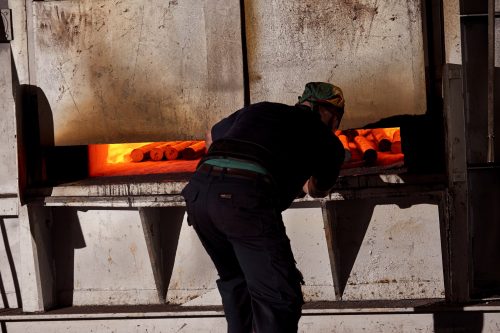Pioneering project to tackle productivity challenge

Big names in manufacturing have come together in a pioneering North West project to help address the nation’s productivity challenges.
The idea of ‘Productivity through People’ (PtP) is for these giants of industry to support leaders of small and medium sized businesses across the region by providing access to some of the latest techniques and research.
More than 40 businesses with an average of around 100 workers have already gone through the programme which sees leading academics from Lancaster University Management School join forces with experts from industrial partners such as Siemens, BAE Systems and Rolls-Royce.
The aim is to deliver practical guidance to help create high performing businesses, with a fully engaged workforce.
The North West pilot, launched in January last year, has successfully delivered productivity gains and the programme is now being repeated in other parts of the UK.
Prof Nigel Lockett, associate dean at Lancaster University, says it drives knowledge sharing down through the supply chain. He believes supporting the development of SMEs is critical to the sector and the wider economy.
He says: “We are working with SMEs that are growth-orientated and want to change and because they are small businesses we are working with MDs and senior management.
“We are finding we can actually influence a large number of people by working with these key decision makers.
“It is all about learning from the experience of others, the likes of Siemens and BAE Systems. They are being given access to real thought leaders.”
Chris Mayne is operations director at Forsberg Services, a £5m turnover company based in Lancaster which specialises in producing high-precision navigation solutions for businesses across a range of sectors, including automotive, container ports, telecommunications and defence.
He has been through the project and says: “It’s really given us new awareness of what to concentrate on and helped bring clarity to the strategic ideas we should focus on.”
“The companies partnering with course are truly best practice in manufacturing and engineering.”
Helen Wilkinson is PtP co-ordinator at Lancaster University. She says: “This is on the ground stuff. We’re seeing businesses learning from each other and sharing.
“That peer network is invaluable and continues after the course. We are trailblazing and want to keep it that way; we want the North West to be seen as the leader on this.
“Our ambition is to double the size of the programme by 2020, it is having an impact.”
Another project having an impact is Liverpool City Region’s LCR 4.0 initiative. It is helping lead Liverpool’s drive to be the UK centre for digital manufacturing.
Advanced manufacturing employs around 50,000 people and is a major part of its economy, with big players in the automotive and pharma sectors such as Jaguar Land Rover (JLR) and AstraZenaca. However, 99 per cent of the city region’s manufacturing businesses are SMEs.
Simon Reid, sector manager for advanced manufacturing at the Local Enterprise Partnership (LEP), says: “LCR 4.0 enables local manufacturing SMEs to accelerate their ideas from concept through to commercialisation and to develop learning and skills along the way.”
He says the programme, which centres round digitalisation and manufacturing, is the first of its kind. It is working with a cross section of companies to increase productivity, shorten design cycles and give them a real competitive advantage.
“We’re getting more and more manufacturers on board,” he says. “Like the rest of the UK, the challenge for the city region is to provide more education to young people around what these skills are.”
Joel Durkin, North West regional affairs manager of the manufacturers’ organisation EEF, says the Liverpool city region has some of the most forward-thinking companies in the UK sector.
He points to companies like ABB, which is developing leading digital technologies for industry and the JLR plant in Halewood, which can produce a car every 80 seconds.
Durkin says: “The ambition of the city region is to be a global manufacturing hotspot with the smartest networks, talent, technology and investment by 2020.”
Breakout piece









